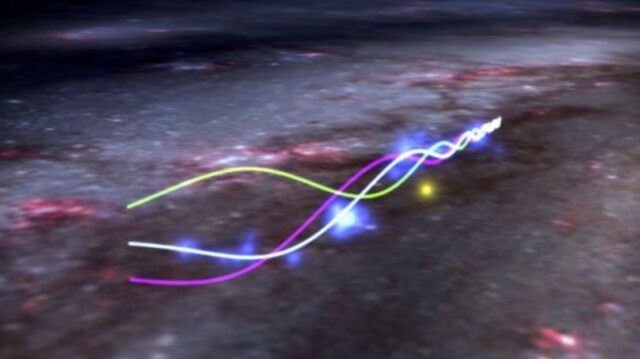 Ralf Konietzka, Alyssa Goodman, and WorldWide Telescope
Ralf Konietzka, Alyssa Goodman, and WorldWide Telescope
A nearby huge ripple of gaseous clouds, the Radcliffe Wave is waving, and moving up and down.
The Radcliffe Wave, an enormous wave-shaped chain of gaseous clouds in our Sun’s backyard, not only looks like a wave but also moves like one. The Wave is waving.
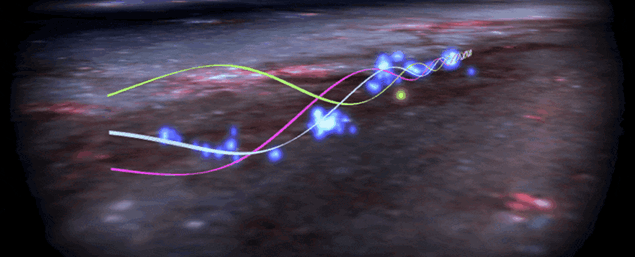
In 2020, scientists made a big discovery in our Milky Way galaxy: they found a huge ripple of stars being born in our neighborhood. They named it the Radcliffe Wave. And now, new research shows that it’s not just sitting still—it’s moving! Imagine it like a wave in a stadium, where people stand up and sit down in a sequence.
This discovery was made possible by newer data from Gaia, a space mission. Scientists confirmed that the whole wave is in motion by studying how young star clusters in the Radcliffe Wave are moving.
This gigantic structure, stretching 9,000 light-years across, is just 500 light-years away from our sun at its closest point. But even though we can see it, we still don’t know what caused it or why it moves the way it does. This opens up a whole new set of questions for researchers to explore.
source Eurekalert


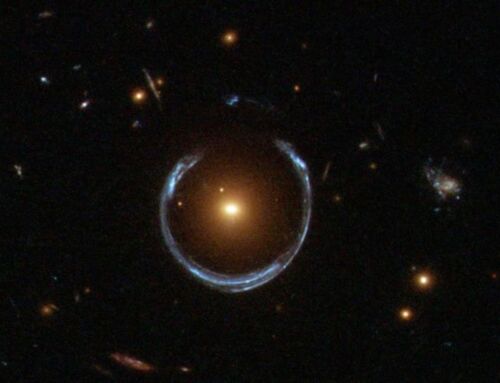
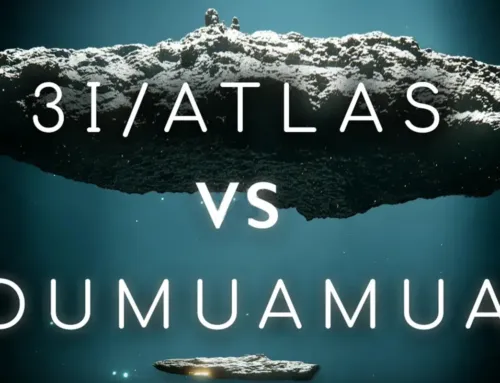
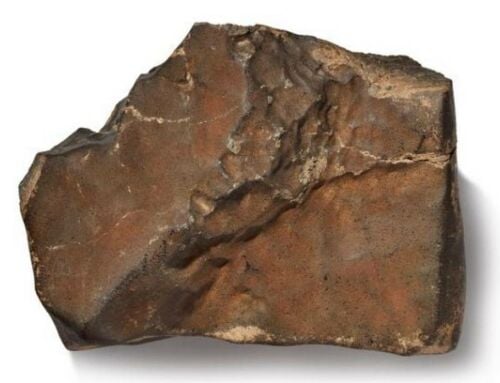
Leave A Comment